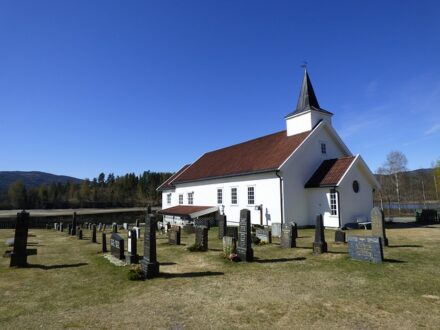Today marks the 20th anniversary of the spiritualabuse.org website. [Edit: 2023 marked our 26th anniversary and I have updated this post with a few stats.] We had a very small beginning way back on August 23, 1997 and over time have grown to be fairly large. We were originally part of AOL’s home pages (membership pages) until January 25, 2000 when I obtained the spiritualabuse.org domain name. I had been watching the domain name for awhile and no one had obtained that or the .com. After I purchased the .org domain, the .com was obtained on May 25, 2000 by Dale S. Ryan for Jeff VanVonderan’s abuse website. [Edit: The domain name has been secured and paid ahead through January 25, 2029.]
For those who were not aware of the website back in the late 90s, the Wayback Machine has an archive of some of the pages during our days at AOL. Some of our readers may want to see our modest beginnings and compare how much the site has changed since then. I have to chuckle when I see some of it. 🙂 At that time, there were not yet many websites or writings on the subject of abuse in churches.
On May 16 of the same year we started the Christian-Koinonia Support Group as part of Egroups, which later became Yahoo Groups. On August 8, 2003 we started to make our move to a phpBB2 bulletin board system and closed the Yahoo list to posting on August 31, 2003 after moving the group to the website. Moving ahead to December 29, 2007, we purchased vBulletin’s software and in early January 2008 we were up & running on our present system. We have a wealth of information there for those who have experienced an unhealthy church. [2023 Edit: Since starting the Facebook group, this one has been mostly inactive, so we don’t advertise it now.]
March 30, 2010 was the day that the Facebook Page promoting the website started. This is open to public view and has just over 1250 likes. [12/26/23 Edit: The Page now has 10,378 followers and 7263 likes.] Then on February 20, 2015, we opened a closed (private) support group on Facebook that has grown to just under 200 members. [12/26/23 Edit: The support group now has 866 members.]
January 11, 2012 is when our YouTube channel was opened and on August 15 we started uploading videos. There are 48 videos available and they have had 62,514 views. We have 111 subscribers. [12/26/23 Edit: It now has 50 videos and 322 subscribers. Nothing has been posted since 2018, though some playlists are updated. I hope at some point to get back to this.]
In June 2016, we added this WordPress blog section & I decided to try Twitter again after an unsuccessful earlier attempt in 2010. [12/26/23 Edit: We do regularly tweet. There are 1135 followers and 8011 posts have been made. The blog now includes 973 posts and has had about 31 authors through the years.]
[12/26/23 Edit: We added an Instagram account in the summer of 2023, and there are 71 followers. It hasn’t yet been utilized alot.]
Instead of being able to decrease our activity, the need for material and support groups dealing with spiritual abuse has not diminished since 1997, but rather has increased. The number of books and articles on the subject is plentiful today as more and more people speak up and add their voices and knowledge. The number of websites dealing with some aspect of abuse has rapidly grown, though some of them have also folded after a season. I wish that there was no longer a need for this site or our support group. But every day people are joining unhealthy churches and are subjected to spiritual abuse.
I’d like to thank all of those who have helped this website in some way through the years. Your support has enabled us to continue our efforts to help those who have found themselves in turmoil after being part of an unhealthy church. I had no clue when this first started that we would still be around 20 years later. May all who have been subjected to spiritual abuse find healing and be free of all the erroneous teachings and false perceptions of God.
********
Shop at our Amazon store! As an Amazon Influencer, this website earns from qualifying purchases.



